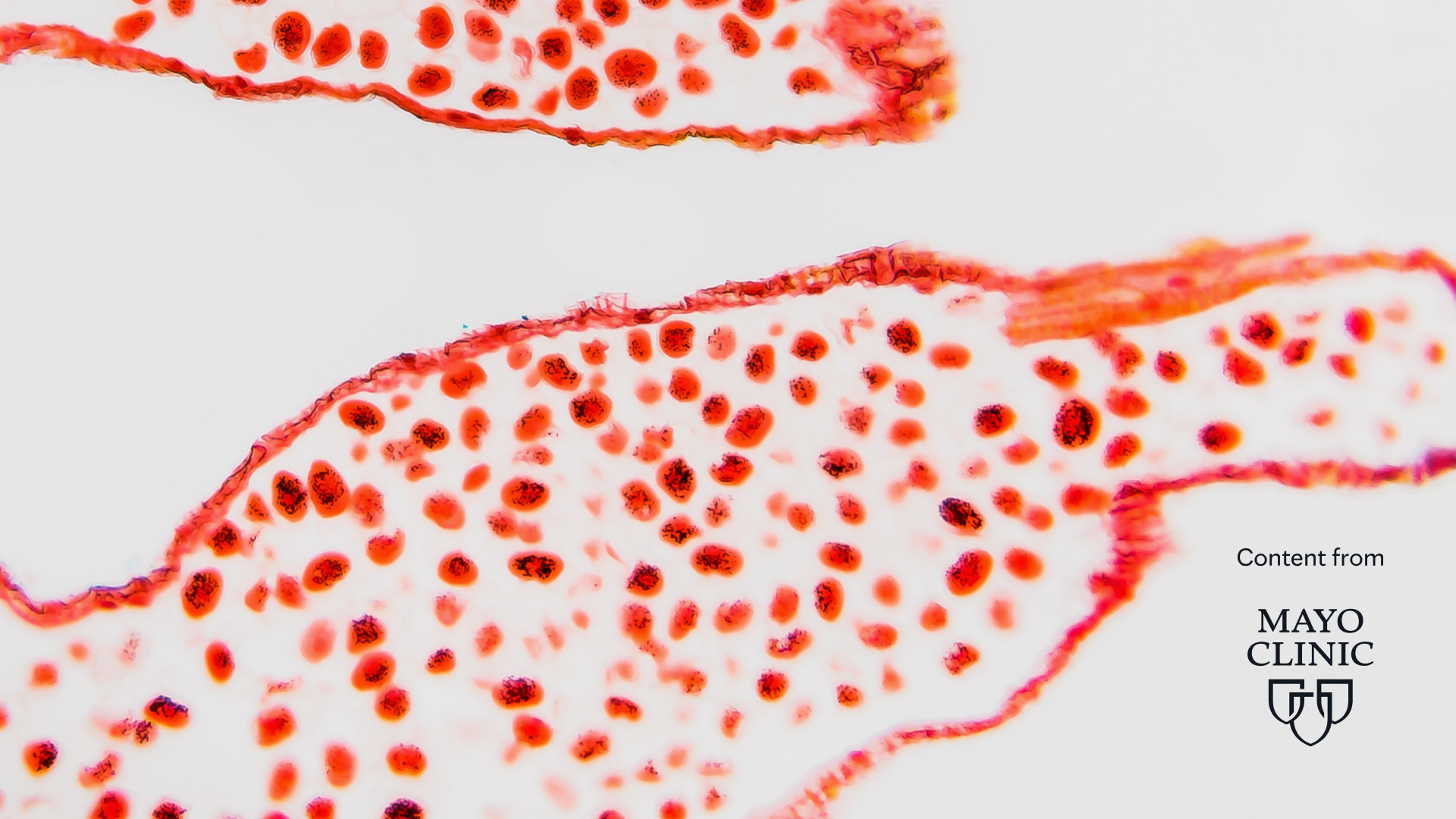
The immune system has two parts. The immunity you’re born with is called natural or innate immunity that’s encoded into your genes.1,2
The second part of the immune system is called acquired or adaptive immunity. The acquired immune system continues to develop as you go through life and are exposed to germs and other pathogens. This part of the immune system is critical to protecting you now and in the future.1,2
Paying attention to four key areas in your life can give your immune system what it needs to function optimally and protect you from cold-causing viruses and other more serious intruders.
Here’s how:
Understanding acquired immunity
The acquired immune system has three main goals: to recognise pathogens, to verify they are intruders and not part of your body, and to attack them if they are intruders. This part of your immune system is specific to pathogens you encounter after birth, such as bacteria, viruses, parasites, pollen, dust, and toxic chemicals. It also remembers intruders and how to respond in case of a repeat exposure.1-3
Your acquired immunity develops in one of two ways.
Active immunisation is when you’re exposed to a pathogen naturally or via a vaccine, and your immune system makes antibodies to fight it. Antibodies are proteins that attach themselves to a harmful invader, signalling immune cells to destroy it.3,4
Passive immunity is when you are given antibodies instead of making them on your own. Antibodies passed from a mother to an unborn baby through the placenta is one example of passive immunity. Another example is when someone receives antibodies from an injection as part of a treatment plan to fight a disease or condition. Passive immunisation doesn’t last as long as active immunity.3,4
The acquired immune response is critical because it can target specific pathogens. T and B cells are the two main cell types involved in the adaptive response. T cells protect you by attacking pathogens and unhealthy cells and removing them from the body. In addition, they help manage the acquired immune response. B cells make antibodies against specific pathogens.3,5
Some T and B cells change into memory cells. Memory cells are found mainly in the lymph nodes and the spleen. Like their name implies, after an encounter with a harmful intruder or pathogen, they remember it and quickly attack it. This is the reason you typically don’t get a disease like measles more than once.5
4 things you can do to support your immune system
There’s no surefire way to build your immune system’s strength. However, you can make sure it has what it needs to function optimally by making adjustments in these four areas:2,6-8
1. Eat a healthy diet. The fuel you put into your body plays a critical role in how well your immune system works.
Eating a diet that’s rich in fruits and vegetables, such as the Mediterranean diet, serves up antioxidants, anti-inflammatory nutrients, and polyphenols that support healthy immune responses.2 Polyphenols are plant-based micronutrients that impact how the immune system responds. What you eat also helps the beneficial bacteria in your gut communicate with the immune system and the lungs. This allows for a more effective response to foreign invaders like respiratory viruses, for example.8
On the flip side, eating an excess of unhealthy, high sugar, and processed foods promotes chronic inflammation in the body.2 This constant inflammation diverts the immune system’s attention and lessens its ability to recognise and fight other inflammatory processes, such as an invading organism that could cause infection.2 Dietary sugar, especially fructose, can also interfere directly with the function of your immune system.9
Aim for five to nine servings of fruits and vegetables daily. A serving of fruit is one medium piece of fresh fruit, 1 cup of berries or melon, or ½ cup of canned fruit packed in its juice. A serving of vegetables is ½ cup cooked or 1 cup raw.
Here’s where to find essential nutrients that support your immune function:6-8
- Beta carotene – sweet potatoes, spinach, carrots, mangoes, broccoli and tomatoes
- Vitamin C – citrus fruits, berries, melons, tomatoes, bell peppers and broccoli
- Vitamin D – fatty fish and eggs, milk and 100% juice fortified with vitamin D
- Vitamin E – wheat germ; sunflower, safflower, corn, and soybean oils; nuts such as almonds and seeds such as sunflower seeds; green vegetables, including spinach and broccoli; breakfast cereals (choose cereal without added sugar), fruit juices and other foods fortified with vitamin E
- Zinc – beef and seafood (especially oysters); plant-based sources include wheat germ, beans, nuts and tofu
- Protein – milk, yogurt, eggs, beef, chicken, seafood, nuts, seeds, beans and lentils
- Polyphenols – apples, berries, citrus fruit, plums, broccoli, cocoa, tea and coffee
If you struggle to get the proper nutrients from your diet, then speak with your health-care professional about supplements that are good options for you.
2. Move your body. Exercise boosts the immune system by maximising your body’s ability to take in and efficiently use oxygen. Moderate exercise (where you can talk but not sing during exertion) is enough to increase the activity of virus-killing cells both in the short term and the long term.2
Guidelines recommend at least 30 minutes daily, five times a week. But even 20 minutes daily can help quell inflammation and boost immunity and exercise can be divided up during the day.
If you’ve been sedentary, start with some stretches and a walk down your street. Then increase your activity as you’re able.
3. Practice stress relief. Stress increases the production of the hormone cortisol in your body, which in turn can suppress the immune system. Calming activities help manage your body’s stress response, reduce cortisol production, and enhance the immune system’s function.2,6
Practicing mindfulness and stepping away from what’s causing stress can help you stay grounded. Exercises with calming or meditative qualities, such as qi gong, tai chi and yoga are also beneficial.6
4. Get quality sleep. The interaction between the immune system and sleep is a two-way street. When your immune system kicks in, it changes your sleep. For example, you may find yourself sleeping longer while your body is attacking a virus. On the other hand, if you don’t get enough sleep, you might notice that you get sick more easily.2
Getting quality sleep supports your immune system by increasing the number of immune cells circulating in your body. Proper sleep is associated with a reduced risk of developing an infection and improved recovery following an infection. In addition, getting adequate sleep before receiving a vaccination has been shown to double the immune response in humans.2
In general, experts recommend adults get 7-9 hours of sleep each night, while children need 8-14 hours, depending on their age. However, the amount of sleep the immune system requires to function optimally is highly individual. If lack of sleep is leaving you tired and run-down, your immune system will likely experience the same effects.2,6
Not smoking and limiting alcohol can also keep your immune system humming along and ready to fight off whatever germs come your way.
- Types of immunity: Innate and adaptive immunity. Mayo Clinic. https://connect.mayoclinic.org/discussion/immunity-there-are-several-types-of-immunity/. [Accessed August 15, 2023]
- Understanding immune system health. Mayo Clinic. https://www.mayoclinic.org/~/media/80569BAD2DF84A7394895F041D2726C5.pdf. [Accessed August 15, 2023]
- Marshall JS, Warrington R, Watson W, et al. An introduction to immunology and immunopathology. Allergy Asthma Clin Immunol. 2018;14:49.
- Immunity types. Centers for Disease Control and Prevention. https://www.cdc.gov/vaccines/vac-gen/immunity-types.htm. [Accessed August 15, 2023]
- Thompson AE. JAMA patient page: The immune system. JAMA. 2015;313(16):1686.
- Fight off the flu with immune-boosting nutrients. Mayo Clinic. https://www.mayoclinichealthsystem.org/hometown-health/speaking-of-health/fight-off-the-flu-with-nutrients. [Accessed August 15, 2023]
- Vitamin E. National Institutes of Health. https://ods.od.nih.gov/factsheets/VitaminE-Consumer/. [Accessed August 15, 2023]
- Williamson G. The role of polyphenols in modern nutrition. Nutr Bull. 2017;42(3):226-235.
- Takahashi K, Chang W-C, Moyo P, et al. Dietary sugars inhibit biologic functions of the pattern recognition molecule, mannose-binding lectin. Open J Immunol 2011;1(2):41-49.
Share:
Related Posts

Goodbye Pie Chart, Hello Phase 1 Sliders
Written by Allison Smith, ND | 2025 As we usher in a new era of DUTCH testing which leaves behind the concept of the three-way

Introducing the DUTCH Dozen
Written by Kelly Ruef, ND | 2025 Hormone testing can be complex, which is why Precision Analytical developed the DUTCH Dozen, an interpretive framework that

DUTCH Report Enhancements
Written by Hilary Miller, ND | 2025 Precision Analytical have released the newest version of the DUTCH Test. This is the report’s most significant update

Gallbladder Health 101: What It Does and How to Keep It Working Well
Written by Ashley Palmer & Pooja Mahtani | 2025 The gallbladder may not get much attention compared to the gut, but it plays a central

Can You Bring Vitamins on a Plane? How To Travel with Supplements
Written by Austin Ruff | 2024 Are you traveling for a work conference, an athletic competition, or a weekend getaway? Just because you’re leaving home

